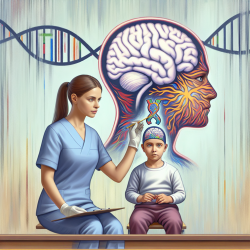The mental health of war-affected children is a critical issue that has garnered significant attention over the past decade. A recent study titled The Efficacy of a Group Cognitive Behavioral Therapy for War-Affected Young Migrants Living in Australia: A Cluster Randomized Controlled Trial sheds light on the effectiveness of Cognitive Behavioral Therapy (CBT) in addressing the psychological needs of these vulnerable children.
This study, conducted by Ooi et al. (2016), involved 82 participants aged 10-17 years who were resettled in Australia after being exposed to war trauma. The participants were divided into two groups: an intervention group that received an 8-week CBT program and a waiting list (WL) control group. The primary focus was to evaluate the impact of the intervention on symptoms of post-traumatic stress disorder (PTSD), depression, internalizing and externalizing problems, and psychosocial functioning.
The findings revealed a medium intervention effect for depression symptoms. Participants in the intervention group experienced a greater reduction in depression symptoms compared to the WL control group, with this improvement maintained at a 3-month follow-up. Specifically, the study reported:
- A statistically significant reduction in depression symptoms (F(1, 155) = 5.20, p = 0.024, partial η2 = 0.07).
- The reduction in depression symptoms was sustained at the 3-month follow-up (F(2, 122) = 7.24, p = 0.001, partial η2 = 0.20).
Interestingly, the study did not find significant improvements in PTSD symptoms or other measured outcomes such as internalizing and externalizing behaviors and psychosocial functioning. This highlights the complexity of addressing PTSD in war-affected children and suggests that while CBT can be effective for depression, additional or alternative interventions may be necessary for PTSD.
For practitioners, these findings underscore the importance of incorporating evidence-based interventions like CBT in their practice, especially for addressing depression in war-affected children. However, it also calls for further research to identify more comprehensive strategies to address PTSD and other psychological issues in this population.
Here are some practical steps practitioners can take based on the study's outcomes:
- Implement group-based CBT programs to address depression symptoms in war-affected children.
- Monitor the long-term effects of CBT interventions and consider follow-up sessions to sustain improvements.
- Explore complementary therapies to address PTSD and other psychological issues that CBT alone may not resolve.
- Engage in continuous professional development to stay updated on the latest research and interventions for trauma-affected children.
In conclusion, while the study by Ooi et al. (2016) demonstrates the potential benefits of CBT for reducing depression symptoms in war-affected children, it also highlights the need for a multifaceted approach to address the full spectrum of psychological issues faced by these children. Practitioners are encouraged to implement these findings in their practice and to contribute to further research in this critical area.
To read the original research paper, please follow this link: The Efficacy of a Group Cognitive Behavioral Therapy for War-Affected Young Migrants Living in Australia: A Cluster Randomized Controlled Trial.










